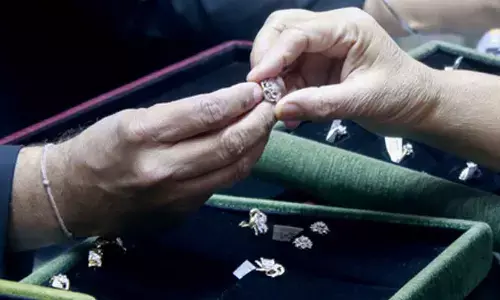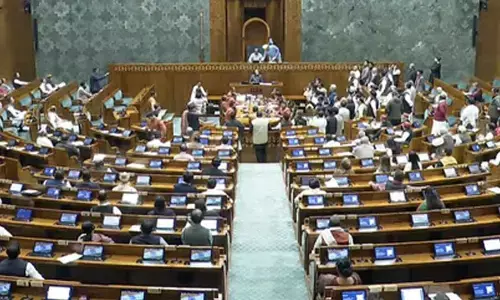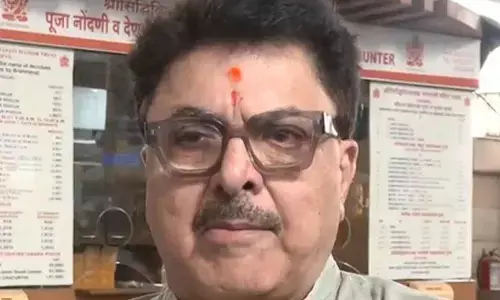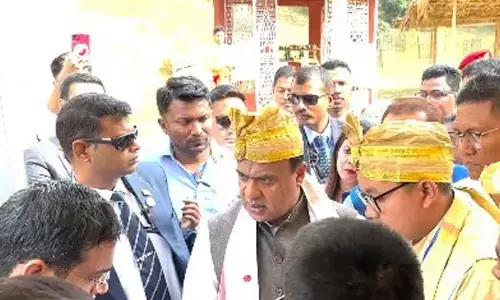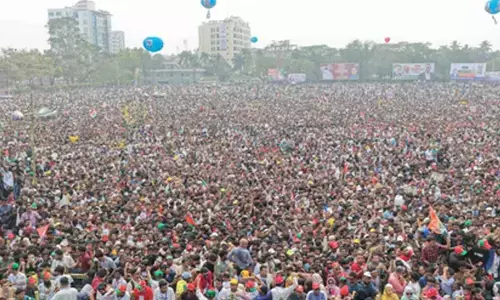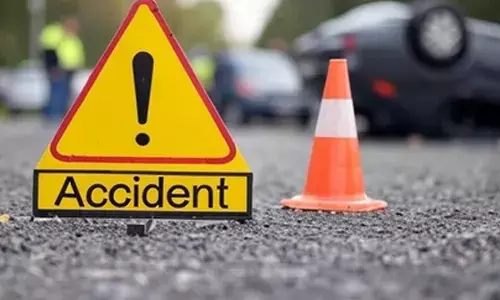Swaying the voters’ views and moods
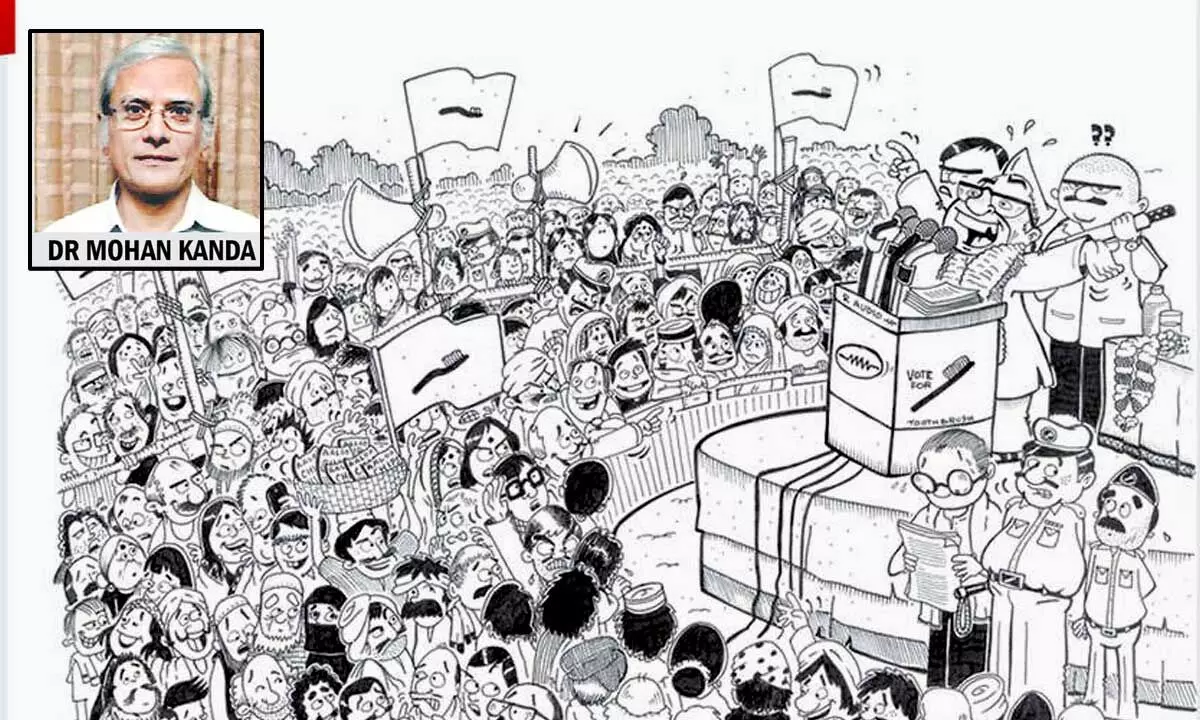
The one conducted by the legendary NTR, matinee idol-turned-sensational politician, was one of the most spectacularly successful campaigns of that genre.
Allgreat political leaders, whom I have known, had their characteristically personalised ways of conducting pre-election campaigns.
The one conducted by the legendary NTR, matinee idol-turned-sensational politician, was one of the most spectacularly successful campaigns of that genre. Within nine months of floating the new Telugu Desam Party (TDP), NTR led it to a thumping majority, bringing, to an abrupt end, three decades of rule by the Congress Party. NTR toured the undivided Andhra Pradesh state, covering its length and breadth on his ‘Chaitanya Radham’, a re-modelled Chevrolet van, driven by his son Harikrishna.
The screening of propaganda films, during the run-up to elections, is not a new phenomenon in the Telugu states. NTR was well-known for using his films to woo voters.
His election campaign set the stage for the use of cinema as a tool for campaigning In the Telugu states. In more recent times, films like Yatra (2019), Yatra 2 (2024), Vyooham (2023), and Vivekam (2024), to name a few, also dealt with politicians, their parties, and electoral politics. They generally ride on invoking nostalgia for regional leaders, turn them into towering personalities, and take digs at the opposition parties. While these films neither perform wonders at the box office, nor have considerable sway over Telugu voters, industry insiders and scholars believe that they serve an interesting purpose. Several older films of NTR were screened in theatres, and smaller components of his films like songs and dialogues were sold on the streets as audio cassettes.
The release of these movies is also well-timed as they are released in the run-up to the Assembly and Lok Sabha elections.
I have, myself, had personal experiences, both of contesting elections, as well as helping others conduct their election campaigns,
One of the earliest elections, which I contested was for the post of the Chairman of the Officers Club, at the National Academy of Administration, Mussoorie, early in my days as a Probationer (now called Officer Trainee). I filed my nomination at the instance of some good friends, such as S K Duggal. And, before I even knew what was happening, I was declared elected!
I was a Secretary in the office of Chief Minister Janardhana Reddy in 1990. One fine day, none other than my childhood hero, and formerly India cricket captain, Ghulam Ahmed, walked into my office, and requested me to become one of the Vice Presidents of the Hyderabad Cricket Association. Extremely reluctant, and somewhat apprehensive, but unable to turn down a request from such a distinguished gentleman, I acquiesced. As required by the rules, I obtained clearance from the department concerned of the state government, and joined the fray. I did no canvassing of my own, as it would have been embarrassing. But the good image created, among the Member Associations, by good friends, such as Shivlal Yadav (Hyderabad cricketer, who took 100 wickets for India in Test matches), helped me succeed. As the day of the election was approaching, I was travelling to the Secretariat, along with Janardhana Reddy, one morning. When the subject of the election cropped up, all that the Chief Minister had to say, was that he hoped that I would win!
During my tenure as Secretary to the Vice President of India, Justice M Hidayatullah, formerly the Chief Justice of India, being the incumbent of that distinguished office at that time, the ever cheerful, and ebullient Sudarshan Agarwal, my good friend and the Secretary General of the Rajya Sabha at that time, (subsequently also to be the Governor of Uttar Pradesh), sought my assistance in campaigning for the Presidentship of the famous Delhi Gymkhana Club. Despite his charismatic personality, and my own sincere efforts, victory, however, was not to be his.
Quite apart from the need for, or the importance of, consultancy services, referred to in the previous part, one thing digital technology has done is to seriously hamper the Election Commission’s ability to monitor compliance to the embargo on canvassing in the last 48 hours before polling.
One of the more well-known practitioners of this budding art is Prashant Kishore. Kishor worked as a political strategist for the BJP in order to gain knowledge, and then for the JD (U), INC, AAP, YSRCP, DMK and TMC. His first major political campaign was in 2011 to help Narendra Modi, then the Chief Minister of Gujarat, get re-elected to the Gujarat State Assembly, for the third time. However, he came to wider public attention when Citizens for Accountable Governance (CAG), an election-campaign group he conceptualised, helped the Narendra Modi-led Bharatiya Janata Party (BJP) win an absolute majority in the 2014 Lok Sabha election.
He worked in public health programmes funded by the United Nations for eight years before venturing into Indian politics and working as a political strategist.
Until the voters are made aware of their privileges and empowered to exercise their franchise in a mature, and informed manner, money power, and the capacity to offer inducements or create fear, will, regrettably, continue to play a major role, in impacting on the choice of the voters.
In 1979, Chaudhary Charan Singh. Prime Minister of India, visited Krishna district in Andhra Pradesh state for an election campaign. I was then the Collector of that district. The PM had concluded his commitments, and was about to leave from the Gannavaram airport, near Vijayawada, Ramavtar Yadav, the SP and I were bidding him the customary farewell. Charan Singh enquired after our backgrounds, and, upon being told that Yadav was from Bulandshahar, he beamed widely and hugged him, exclaiming, “Bulandshahar!” I would joke with Yadav, for several weeks later, that, somehow, his respect for me appeared to have declined after that incident!
Mrs. Indira Gandhi also visited Krishna district, around the same time, as part of her election campaign. Chief Minister M Channa Reddy accompanied her. The visit and the campaign were more or less uneventful. I do, however, recall an amusing incident. It was a hot day and around noon, the CM asked for a drink of water. A security official gave him a flask, which, unfortunately, contained boiling hot water! The CM spat out the water and thundered at the official, asking him how he dared do such a thing. Late that night, at the Canal Guest House in Vijayawada, it was a cool evening. And when Channa Reddy asked for water, it was the same unfortunate official, who produced absolutely chilled water, probably recollecting the afternoon’s experience! All I can say is that the chap was lucky, not to have lost his job!
(The writer was formerly Chief Secretary, Government of Andhra Pradesh)








